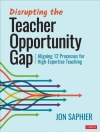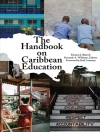Internet activism is playing a crucial role in the democratic reform happening across many parts of Southeast Asia. Focusing on Subang Jaya, a suburb of Kuala Lumpur, this study offers an in-depth examination of the workings of the Internet at the local level. In fact, Subang Jaya is regarded as Malaysia’s electronic governance laboratory. The author explores its field of residential affairs, a digitally mediated social field in which residents, civil servants, politicians, online journalists and other social agents struggle over how the locality is to be governed at the dawn of the ‘Information Era’. Drawing on the field theories of both Pierre Bourdieu and the Manchester School of political anthropology, this study challenges the unquestioned predominance of ‘network’ and ‘community’ as the two key sociation concepts in contemporary Internet studies. The analysis extends field theory in four new directions, namely the complex articulations between personal networking and social fields, the uneven diffusion and circulation of new field technologies and contents, intra- and inter-field political crises, and the emergence of new forms of residential sociality.
Mục lục
List of Figures
Acknowledgements
Preface
Photo-Essay
Chronology
Chapter 1. An Internet Field
Chapter 2. Localizing the Internet
Chapter 3. Research Setting
Chapter 4. Smarting Partners
Chapter 5. Personal Media
Chapter 6. Internet Dramas
Chapter 7. Residential Socialities
Chapter 8. Conclusion
FAQs
References
Index
Giới thiệu về tác giả
John Postill is Senior Lecturer in Media at Sheffield Hallam University and a Fellow of the Digital Anthropology Programme, University College London (UCL). He holds a Ph.D. in anthropology from UCL and is the author of Media and Nation Building (Berghahn 2006), based on fieldwork among the Iban of Borneo, and coeditor of Theorising Media and Practice (Berghahn 2010).












